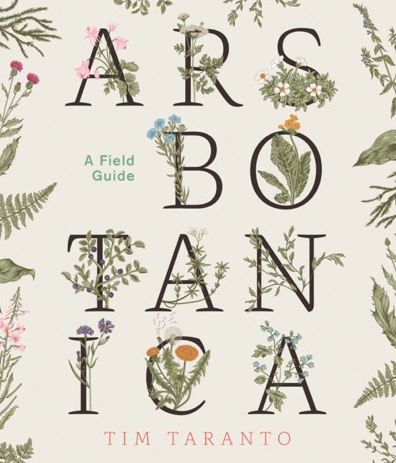Ars Botanica: A Field Guide
Ars Botanica is a Bittersweet Memoir Through Letters to an Unborn Child
Ars Botanica is Tim Taranto’s first book. Part poetic memoir, part field guide, and written as letters to his unborn child, this book is both heartbreaking and heartwarming, oftentimes in the same sentence.
The book is broken up by Taranto’s drawings: of flowers, of skulls, of packs of cigarettes, of Patsy Cline and fortune cookie fortunes and something that looks oddly like a diver’s helmet, but with feathers adorning its top. Each drawing comes with a Latin naming on the opposite page and a short definition. The accompanying description ebbs and flows into vignettes that go hand-in-hand with the narrative progressing through the story’s letters.
Next to a drawing of a feather is the title “Barred Owl (Strix Varia)”. Below, Taranto writes:
Lacks ear tufts, large dark eyes, mottled brown “barred’” plumage. Native to the eastern United States, but range has expanded to include the Midwest, Iowa. Caterwauling call sounds like, “Who cooks for you? Who cooks for you?”
“I want to cook for you.”
“Yeah, cook what?”
“Anything. I’m learning how to make ostrich sausage. I’ve been candying lilacs.”
Though the flaura, fauna, and other knick-knacks have their own pages, they are also integral to the story. Ars Botanica begins with a peek into Taranto’s head-over-heels romance with his ex-girlfriend. His ex is never named in the book, only referred to as ‘she’ and ‘her’, despite their unborn child’s name, Catalpa, heading up each section in a ‘Dear’-form address. Together and apart, they collect flowers, acorns, and the occasional flat, round pebble as sacred ornaments to decorate and declare their love for one another.
Taranto expertly navigates through what he calls the ‘Blissed Out Era’ of their relationship, allowing the reader to feel the warmth of their love through the page as they sing Fetty Wap, bake a lamb’s head, and make out in Clark’s. The reader catches glimpses of the doom to come, the unplanned pregnancy that will result in the dissolution of their relationship.
Though the book is letters to their unborn child, there is no judgement cast on the topic of abortion. In the book, Taranto allows his girlfriend to make the decision and supports her. There is no bitterness to the melancholy sadness as Taranto looks back on the ended love affair. At times, the book is darkly humorous, using dialogue to highlight the painful obliviousness of acquaintances as lookers-on. In looking back, Taranto is reflecting through his writing and by the end of the book it seems to be helping him to move forward, to understand through feeling fully what the experience was to him.
Reviewed by Zoe Raines

